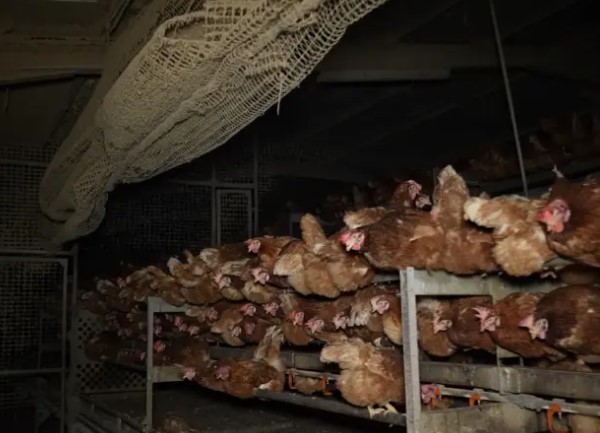Shocking revelations are shaking the Balearic Islands: animal welfare organizations have filed a complaint against a poultry farm in Llucmajor for alleged violations of public health and fraud. Reports and visual evidence depict living chickens amidst animal carcasses, rats, and hedgehogs in extremely unhygienic conditions. This scandal casts a dark shadow on the conditions in one of the largest livestock farms in the Balearics and raises questions about the safety of our food.
The organizations Arde and Satya Animal published an investigation in April of this year revealing serious deficiencies at the farm in question. “A significant lack of hygiene” was noted, with cobwebs and an unappetizing mix of dust, soil, and feathers. Particularly disturbing are the reports that live chickens coexist with dozens of animal carcasses in various stages of decomposition, some even cannibalized. The presence of rats and hedgehogs further intensifies concerns about a zoonotic risk, i.e., the transmission of diseases such as leptospirosis or salmonella to humans. The Balearic Public Prosecutor’s Office for Environmental Affairs has been involved to investigate these alleged crimes against public health.
Julia Elizalde, spokesperson for Arde, also expressed suspicion of fraud. Images submitted to the public prosecutor’s office allegedly show that “free-range chickens” do not have access to the outdoors for up to six days, as the doors of the sheds remain closed. This is a direct violation of EU Regulation 2023/2465, which stipulates that free-range chickens must have uninterrupted access to an outdoor area. Consumers pay on average 35% more for these types of eggs, assuming that the animals are kept in humane conditions – an expectation that is apparently not being met here. The financial incentive to sell free-range eggs without meeting the prescribed conditions could be the driving force.
The farm has a history of violations: in 2024, it was fined 150,000 euros for operating without the mandatory environmental permit in place since 2017 and for improper disposal of excrement. Despite these sanctions, the farm paradoxically received over 380,000 euros in financial support from the European Agricultural Fund for Rural Development (EAFRD) for the construction of an egg sorting center. Arde and Satya Animal denounce that the farm continues to operate illegally, as the necessary environmental permit is still missing. The Ministry of Agriculture, Fisheries and Natural Environment has referred the case to the public prosecutor’s office and issued precautionary measures.
Alarmingly, the farm also holds the Welfair animal welfare seal, which is supposed to guarantee the well-being of the animals. Marina Sánchez, president of the Satya Animal Association, describes this as “alarming” and criticizes that the certificate has become a mere marketing tool. “Consumers are being deceived because they believe they are supporting welfare, when in reality they are financing the exploitation and suffering of animals on a farm in a completely irregular situation,” says Sánchez.
The operation had already caused controversy in summer 2024 when plans for a macro-farm with a capacity of 739,000 animals on Mallorca became known. A debate that concluded in January with the adoption of Decree 1/2025, which prohibits poultry farms with more than 160,000 animals on the islands.
The impact on residents is severe: more than 9,000 inhabitants suffer from fly infestation, odors, and health problems such as respiratory illnesses, migraines, and vomiting. Natalia García, a resident of Llucmajor, describes life less than a kilometer from the farm as “emotional discomfort” that severely restricts coexistence with neighbors or family. Xisco Amaya, another resident, complains that in summer they are “locked indoors” to avoid breathing the polluted air. Neighborhood and environmental organizations are demanding the immediate closure of the farm, arguing that the operation is not approved and violates Law 21/2013 on environmental assessment.
The company concerned, Avícola Son Perot, meanwhile assures that all its farms are subject to “strict internal and external controls” and are regularly inspected by the veterinary and technical services of the Autonomous Community’s administration. They emphasize that their farms have the Welfair animal welfare certification issued by Aenor and that the annual audit for the Llucmajor farm was successfully completed on May 20. The company assumes that “all concerns” about the condition of the farms have been “duly clarified” and reserves the right to take legal action if it believes that the legitimate rights and interests of the company are violated. Given the available reports and evidence, it remains to be seen how this case will unfold.




